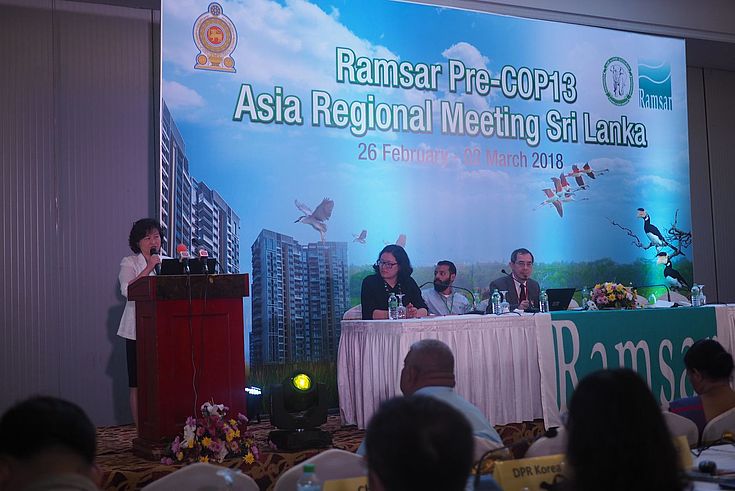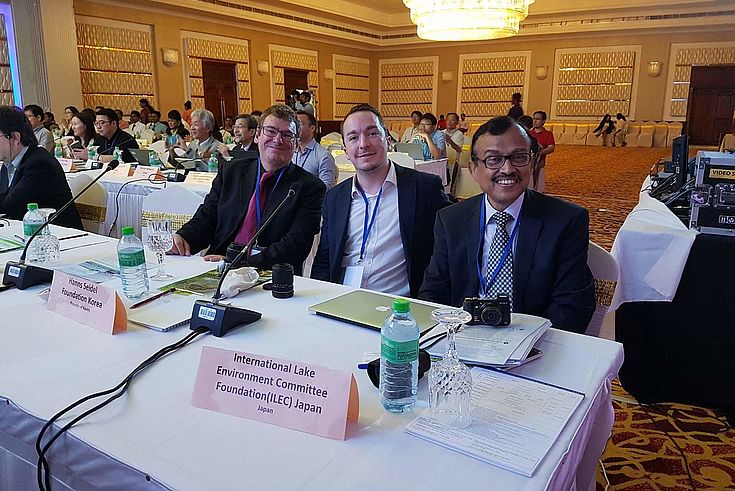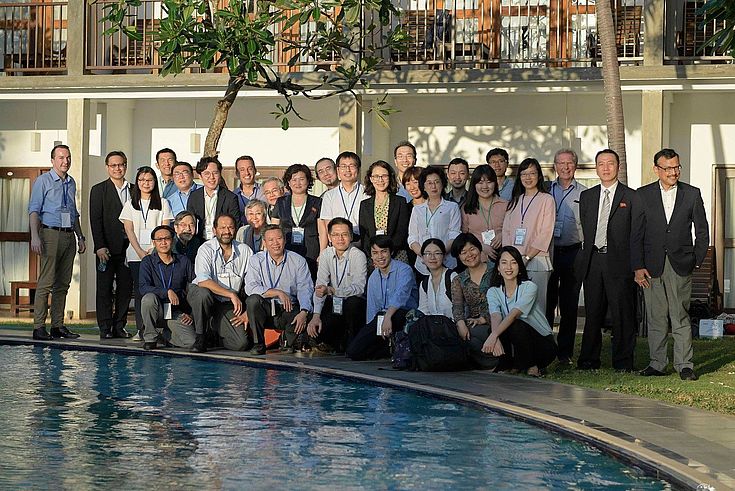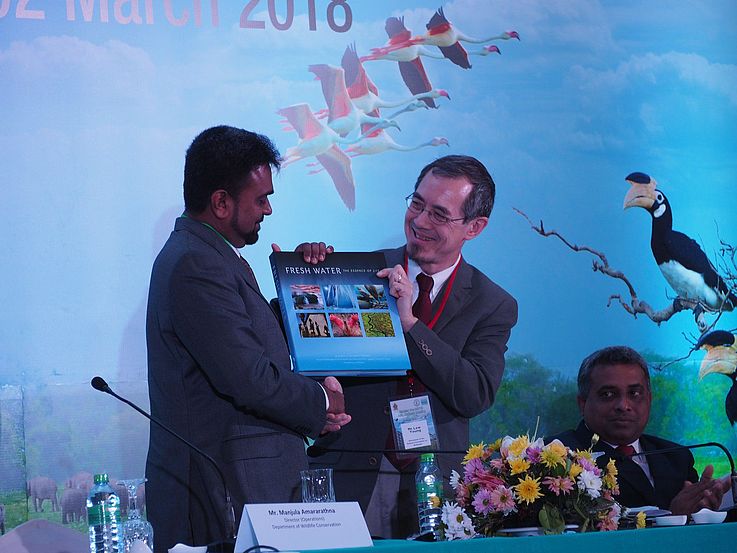Ramsar Pre-COP in Sri Lanka
Cooperation in Asia for the Conservation and Wise Use of Wetlands
“It is important to exchange and to use international experiences to sustainably protect our environment” said the head of the delegation from DPR Korea.
The DPRK became the 170th Contracting Party to the Ramsar Convention
This event brought together representatives of governments, international organizations and academics to review the progress towards the implementation of the Ramsar Convention on Wetlands of International Importance. HSF supported the participation of a delegation and took part in the discussions between the regional stakeholders.
Every three years, the Contracting Parties of the Ramsar Convention on Wetlands of International Importance meet at a Convention of Parties. In order to discuss the participation and draft resolutions for the 13th COP, a Pre-COP meeting with participants from many Asian countries took place in March 2018 in Chilaw, Sri Lanka.
The meeting was opened by representatives of the Sri Lankan government and the Ramsar Secretariat during the opening ceremony on 26 February. The first day focused on the current status of the implementation of the Ramsar Convention in Asia. A presentation by Dr. Lew Young, Senior Advisor for Asia-Oceania at the Ramsar Secretariat, also introduced the work of the Ramsar STRP (The Scientific and Technical Review Panel). During his speech he welcomed the Democratic People´s Republic of Korea as the 170th contracting party of the convention after the country submitted the respective documents and nominated Mundok Migratory Bird Reserve and Rason Migratory Bird Reserve as the first two Ramsar Sites of international importance (you can read the article about the accession here). During the meeting, country representatives had the chance to introduce the status of wetlands in their country. Besides the DPRK, the state of Kuwait was welcomed as the 169th contracting party.
HSF Korea Manager Felix Glenk (middle) together with international participants at the meeting.
Ramsar Regional Initiatives and promoting conservation, restoration and sustainable management of ecosystems
For five days, various topics were discussed. Ramsar Regional Initiatives, such as the East Asian – Australasian Flyway Partnership (EAAFP) and the Ramsar Regional Centre – East Asia (RRC-EA) introduced the status of their work and projects. Both are close partners of HSF Korea. Several draft resolutions of the Convention of Parties of the Ramsar Convention, which will be held in Dubai from 21 to 29 October 2018, were introduced and discussed among the participants. The resolutions are a tool to improve the implementation of the convention and to set up new initiatives. At the COP, the contracting parties will vote on the draft resolutions. In Asia there is a strong focus on wetlands and global climate change, several management tools for wetland conservation, and on the promotion of the conservation and wise use of inter-tidal wetlands.
A special session during the Pre-COP on “Conservation and Management of the Intertidal Wetlands of the Yellow / West Seas” addressed the issue and brought together representatives of these countries as well as academics and international organizations.
Conservation and Management of the Intertidal Wetlands of the Yellow / West Sea
Recently, there has been an increasingly strong focus on wetlands of the Yellow /West Sea. The area is significant for many bird species as well as the human populations living nearby the coastal wetlands in the adjacent countries, namely the People´s Republic of China, the Republic of Korea and the Democratic People´s Republic of Korea. A special session during the Pre-COP on “Conservation and Management of the Intertidal Wetlands of the Yellow / West Seas” addressed the issue and brought together representatives of these countries as well as academics and international organizations. An objective is the creation of a Working Group for the conservation of the Yellow/West Sea intertidal and associated coastal wetlands.
For several years, the Hanns Seidel Foundation has been promoting environment cooperation as a platform for exchange and cooperation in Northeast Asia, and specifically on the Korean Peninsula. Various activities, such as trainings, conferences, biodiversity surveys, and also awareness raising campaigns in the region were organized and one of the outcome was the accession of the DPR Korea to the Ramsar Convention. At the Pre-COP, HSF Korea supported once again the participation of a related delegation and enhanced its network among the international environmental community.




